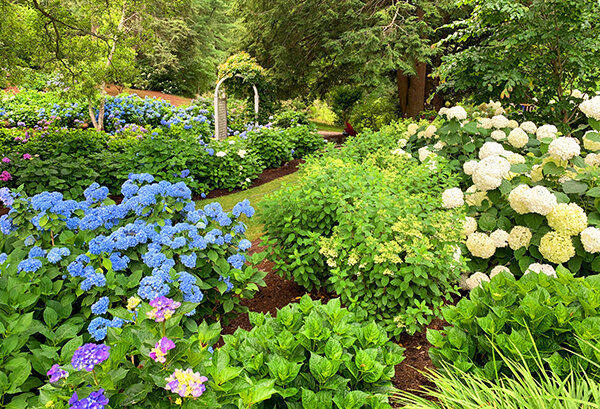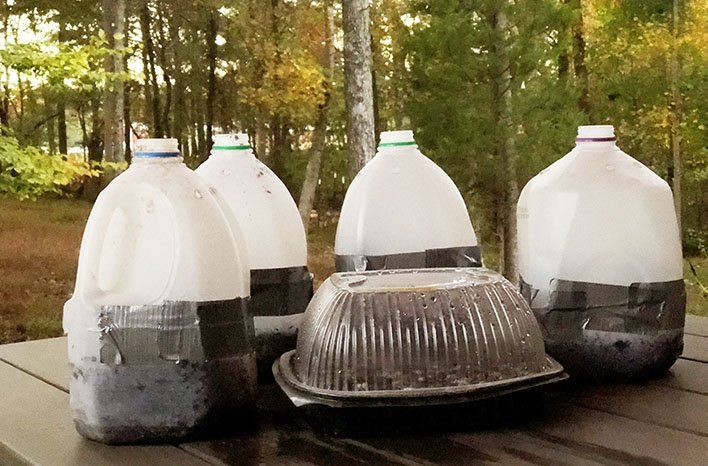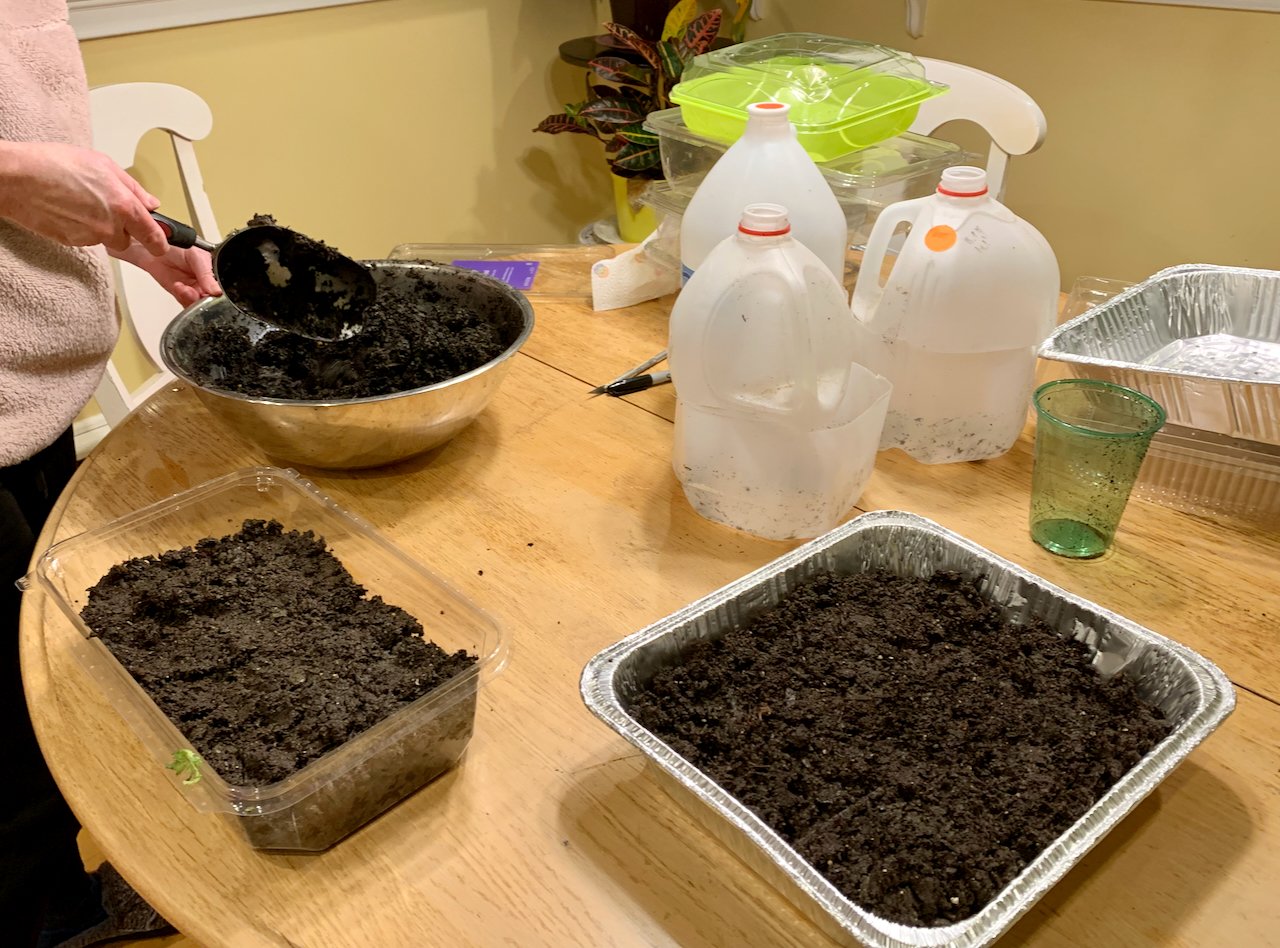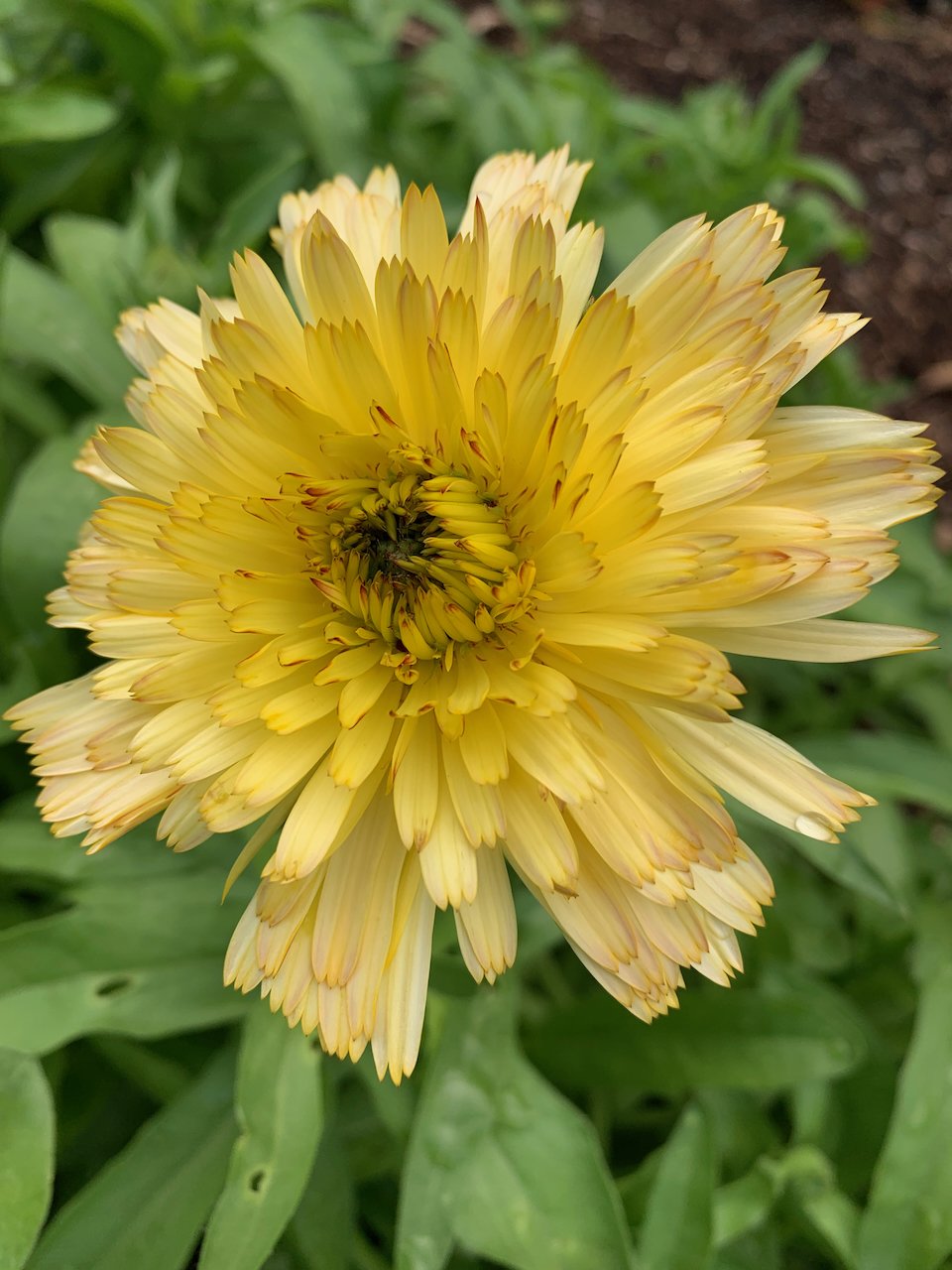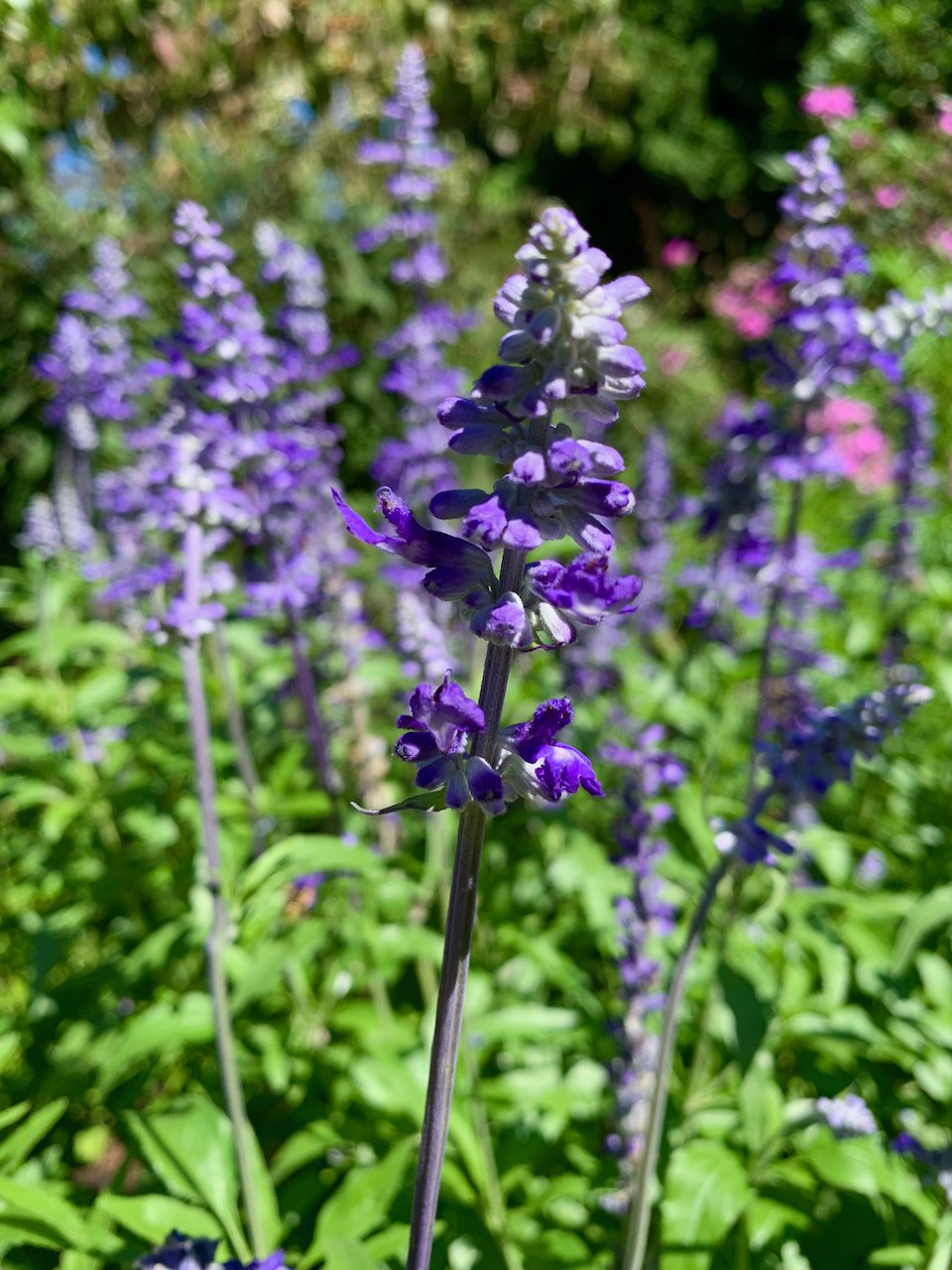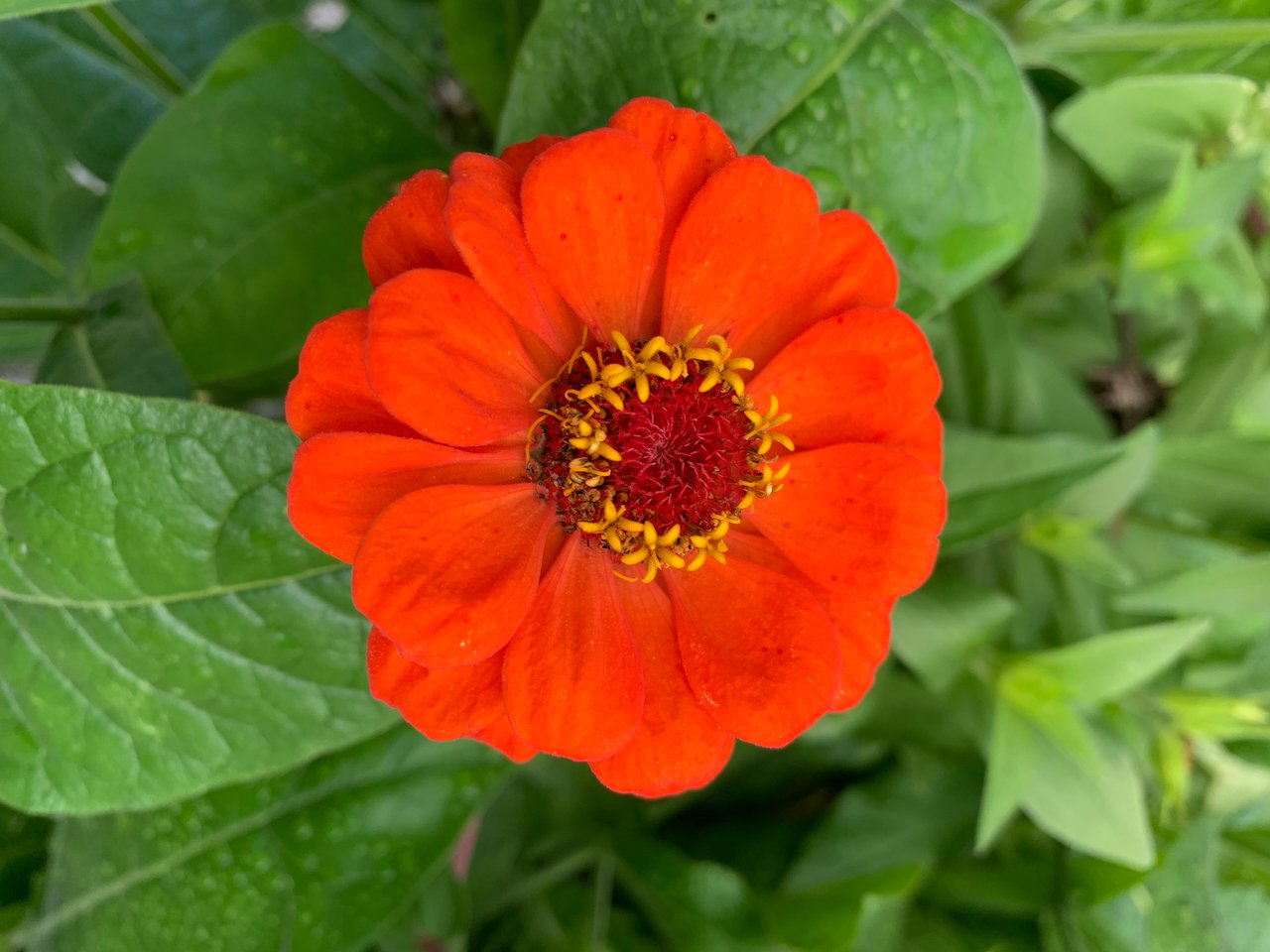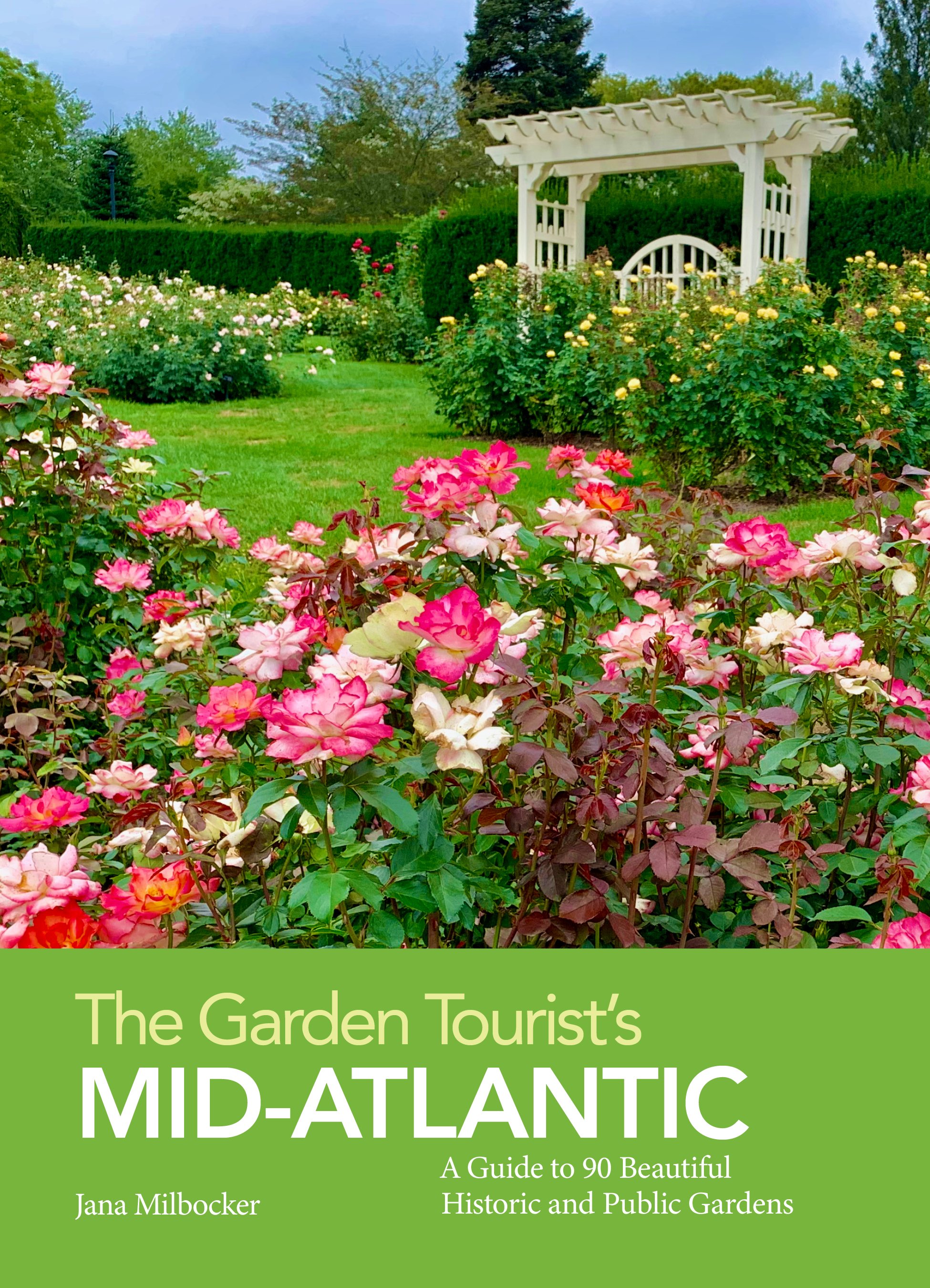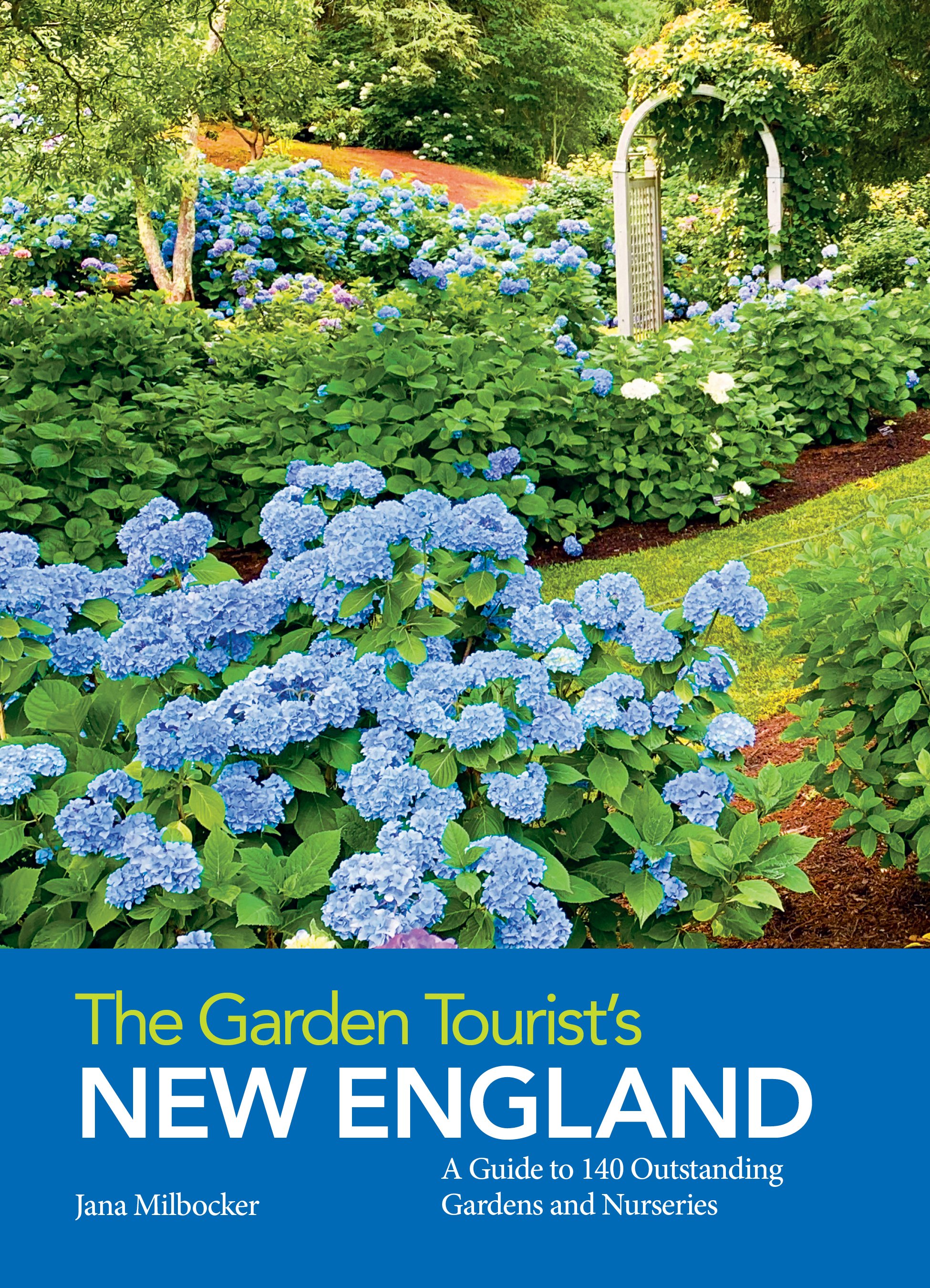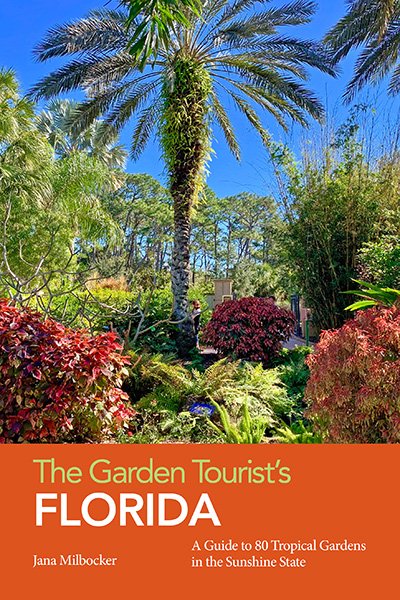Winter Sowing for a Bountiful Harvest
/I love to test new gardening techniques, and for the past two years I tried winter sowing. The technique was popularized by Trudy Davidoff, once a novice, thrifty seed starter, who was challenged for space. Her small home in New York state did not have room for grow lights and seed trays. After some research, Trudi discovered that many seeds need a chilling period to trigger germination, so she decided to mimic what happens naturally. She sowed seeds in containers in late winter and left them outdoors to germinate naturally, without supplemental water or fertilizers. The technique was a success, and Trudi spread the word through a website and Facebook group (Winter Sowers).
After experimenting with winter sowing, I am a convert. The technique is simple, inexpensive, and fun, and allows you to do some gardening during the winter. You don’t need grow lights, heat mats, or seed trays. Your seedling will not be killed by “damping off,” and you do not need to “harden off” the seedlings before planting them outside.
When to sow
Most winter sowers recommend starting after Christmas. I sowed seeds over a period of several weeks last year. For seeds that need stratification or scarification, late January to mid February gives them enough of a chilling time to trigger germination. Seeds that don’t need it can be started later – I started some in March in my Zone 6a garden.
Photo from Joegardener.com
How to Winter Sow
In nature, cold hardy seeds can withstand freezing temperatures, but they are insulated by fallen leaves and plant debris. In winter sowing, that protection is provided by your container, which become a mini-greenhouse. Most of us already have various options to use at home: one gallon plastic milk jugs, 2-liter soda bottles, restaurant take-out containers, and plastic containers that greens and salad mixes are grown in. I used all these options last year, and also purchased some aluminum pans with plastic lids from the Dollar Store, which worked great. It’s best to have 3” of depth for the soil.
Once you’ve got your container, you need to create holes for drainage, air and venting. You can use a Phillips-head screwdriver for this. Heat up the tip of the screwdriver and touch it to the plastic. It melts a good-sized hole without much effort. Make many holes for both drainage and venting. If you’re using a milk jug or a soda bottle, slice around the circumference about 5-6” from the bottom. Don’t cut it completely off. Instead, leave about an inch to work like a sort of hinge for the lid.
For sowing, I recommend a good quality potting soil. Seed starting soil is not necessary, and also provides zero nutrients, so you will need to fertilize if you use it. Dampen the soil, and sow your seeds to the depth specified on the seed packet. Trudi recommended a “mass planting” where you scatter the seeds on the soil instead of carefully spacing them out. This works well for small seeds. Water gently, replace the lid, and label with a paint pen or permanent marker. Tape the milk jugs and soda bottles closed with duct tape, and any other lids that may fly off in a strong wind.
Where to place containers
Your winter sown containers need the warmth of the sun, and access to rain. They should also be protected from animals and foot traffic so they don’t get knocked over and heavy winds. I placed mine close to the back door so that I could easily keep an eye on them. As the temperatures start to warm in the spring, check the containers often for germination. It’s so exciting to see the seedlings emerge! Once they begin growing, you can cut larger openings in your container for air circulation or remove the lids. Make sure that the soil remains damp–water as needed! When the seedlings are tall enough to reach the top of the container and have a sturdy root system, they are ready to transplant into the garden.
Plants that can be winter sown
Annuals: alyssum, calendula, celosia, cleome, cosmos, dahlia, emilia, gaillardia, helianthus, lavatera, linaria, four o’clocks, morning glory, nasturtium, nicotiana, pansy, petunia, portulaca, rudbeckia, snapdragon, sunflower, viola
Perennials: asclepsia, bellis, coreopsis, digitalis, echinacea, flax, gaura, grasses, heuchera, inula, lewisia, liatris, malva, nepeta, oenothera, poppy, red hot poker, salvia, yarrow
Herbs: basil, chamomile, chives, dill, hyssop, marjoram, mint, oregano, parsley, sage, thyme
Veggies: Arugula, beets, broccoli, brussel sprouts, cabbage, cauliflower, chard, carrots, celery, hot peppers, kale, kohlrabi, leeks, lettuce, onions, radish, pumpkin, spinach, winter squash
See my article “12 Terrific Seed Companies for 2022” for seed company recommendations.
I hope that some of you will try winter sowing this year! With 70,000 members, the Winter Sowers Facebook group is a great resource for ideas and information. Trudi has retired, so her Winter Sown website no longer exists, but there are other online sources as well.

